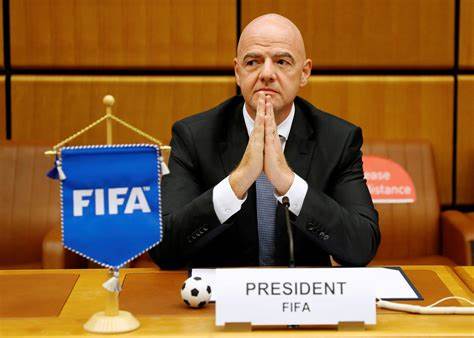
FIFA’s latest financial report reveals significant increases in President Gianni Infantino’s salary, with a 33% raise pushing his total compensation to over 4.13 million Swiss francs ($4.67 million). Infantino’s extended tenure, re-elected unopposed until 2034, coincides with FIFA’s organizational milestones, including hosting upcoming World Cups. His base salary, now exceeding 2.46 million Swiss francs ($2.78 million), along with a consistent annual bonus, underscores his substantial earnings compared to past leaders like Sepp Blatter.
Infantino’s professional engagements span continents, from overseeing the 2022 tournament in Qatar to preparations for the forthcoming event in North America. Notably, FIFA’s projected revenue for the 2023-2026 cycle anticipates a lucrative partnership with Saudi sponsors alongside established allies like Coca-Cola and Adidas, aiming for an impressive $11 billion total income.Former Cowboys DT Jonathan Hankins Is Of Interest To The Seahawks – Report
Despite calls for a more symbolic role following previous corruption scandals, Infantino continues to operate as a hands-on executive, bypassing reform suggestions. Compensation protocols, overseen by a panel chaired by Mukul Mudgal, ensure consistent payouts for FIFA executives and council members.
Comparatively, UEFA President Aleksander Čeferin’s salary echoes the financial prowess of FIFA’s top brass, while figures like Richard Masters of the English Premier League reflect the disparities in domestic soccer earnings.Assessing the Detroit Lions’ Super Bowl Contention Amidst Recent Setbacks: A Debate on Missed Opportunities and Future Prospects
FIFA’s financial activities extend beyond flagship events like the Men’s World Cup, with the 2023 Women’s World Cup contributing significantly to revenue through marketing, broadcasting, and ticket sales. Substantial investments, including funds allocated to participating teams and soccer development initiatives, demonstrate FIFA’s commitment to global football growth.
Despite robust financial reserves, FIFA anticipates a temporary decline in the coming years before an expected resurgence by the 2026 World Cup. This financial stability underscores FIFA’s enduring influence and capacity to navigate both challenges and opportunities in the ever-evolving world of international football.Addressing the Patriots’ Receiver Conundrum: Evaluating Mike Williams as a Potential Solution







